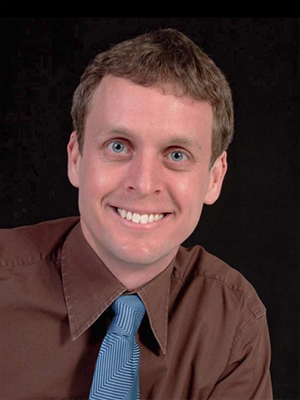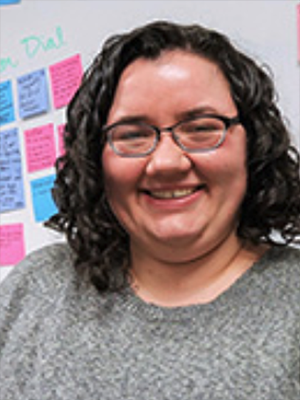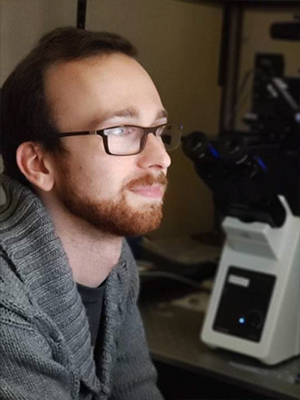This page is for a previous semester (Spring 2020). Please visit this page to select a more recent semester to find updated details.
Here is information on the different sections of ES2 for Spring 2020.
Dr. Babak Moaveni (Section 1)

Department: Civil and Environmental Engineering
Contact Email: Babak.Moaveni@tufts.edu
Bio: Dr. Moaveni is an Associate Professor in the Department of Civil and Environmental Engineering. He has taught the ES2 course for the first time in 2019. His research interests include modeling and data analysis for performance assessment of civil structures.
Section 1 Meeting Times (Dr. Babak Moaveni)
| Mon and Wed, 1:30pm to 2:45pm (Class #22433) | Required Lab (Pick One): 1LA-Lab: Mon 7:30pm to 8:45pm, OR 1LB-Lab: Thur 6:00pm to 7:15pm |
Section 1 Details: Dr. Moaveni’s section will use Matlab as the program language. The class includes three main topics: Programming, Analysis tools, and Data analysis. Under the programming part, we will cover: basics of Matlab, functions, vector variables, conditionals, strings, loops, nested logic, vectorization, number types, structures/cells, GUIS, and file input/output. For analysis tools, we will cover: differentiation, symbolic math, matrices and matrix operations, Ax=b problem setup, and solving regressions. And in the data analysis section we will go over: descriptive stats, least-squares, polynomial fits, data transforms, and least-squares fits.
Dr. Ethan Danahy (Section 2)

Department: Center for Engineering Education and Outreach (CEEO)
Contact Email: ethan.danahy@tufts.edu
Bio: Dr. Ethan Danahy is a Research Assistant Professor at the Center for Engineering Education and Outreach (CEEO) with secondary appointment in the Department of Computer Science within the School of Engineering. Having received his graduate degrees in Computer Science and Electrical Engineering from Tufts University, he continues research in the design, implementation, and evaluation of different educational technologies. Ranging from software and hardware to interfaces and environments, Prof. Danahy explores how these tools can improve interactive educational pedagogies through supports aimed at learners in K-12 through university classrooms. With particular attention to engaging students in the STEAM content areas, he focuses his investigations on enhancing creativity and innovation, supporting better documentation, and encouraging collaborative learning.
Section 2 Meeting Times (Dr. Ethan Danahy)
| Tues and Thurs, 12:00pm to 1:15pm (Class #23697) | Required Lab: 2LA-Lab: Fri 1:30pm to 2:45pm |
Section 2 Details: Dr. Danahy’s section will be teaching the Python programming language and using the Raspberry Pi processor as a hardware platform (instead of a textbook, students will be required to each purchase a Raspberry Pi and some other additional hardware). This section will also experiment with a “distributed expertise” educational model where sub-groups of students within the section will explore different topics (assigned by instructor; ranging from sensors/robotics hardware, to image processing/computer vision, to cloud computing, to system architecture) and, for a final project of the semester, bring those expertise back together via interdisciplinary group work.
Dr. Jennifer Cross (Section 3)

Department: Center for Engineering Education and Outreach
Contact Email: Jennifer.Cross@tufts.edu
Bio: Dr. Jennifer Cross is a Postdoctoral Researcher at the Tufts University Center for Engineering Education and Outreach where her primary research interests include human-robot interaction with a focus on the educational applications of robotics and supporting diversity in engineering education. She completed her PhD in Robotics within the Community Robotics, Education, and Technology Empowerment Lab at Carnegie Mellon University where she helped to develop the Arts & Bots Program, a creativity-oriented, middle school robotics program using the Hummingbird Robotics Kit.
Section 3 Meeting Times (Dr. Jennifer Cross)
| Tues and Thurs, 10:30am to 11:45am (Class #23700) | Required Lab: 3LA-Lab: Fri 10:30am to 11:45am |
Section 3 Details: Dr. Cross’ section will be using Python and microcontrollers to complete frequent small projects and collect real world sensor data for analysis. Instead of a textbook, students will be expected to purchase their own microcontroller and accessories for the course. Students will apply computational thinking and codings skills to address multi-week projects which emphasize data science and modeling methods among other topics. Class time will be split between short lectures / demonstrations, working on practice problems in groups, and project work time.
Dr. Chelsea Andrews (Section 4)

Department: Center for Engineering Education and Outreach
Contact Email: Chelsea.Andrews@tufts.edu
Bio: Dr. Chelsea Andrews is a post-doc at the Center for Engineering Education and Outreach and works closely with Dr. Kristen Wendell. She has a B.S. in Ocean Engineering from Texas A&M University, an S.M. in Civil and Environmental Engineering with a focus on environmental fluid dynamics from MIT, and a Ph.D. in Engineering Education from Tufts. While her engineering research was purely quantitative, her current education research is mostly qualitative, and focuses on investigating children’s engagement in engineering design through in-depth case study analysis.
Section 4 Meeting Times (Dr. Chelsea Andrews)
| Tues and Thurs, 1:30pm to 2:45pm (Class #23952) | Required Lab: 4LA-Lab: Fri 12:00pm to 1:15pm |
Section 4 Details: Dr. Andrews’ section will use Matlab as the programming language. The class includes three main topics: Programming, Analysis tools, and Data analysis. Most class periods will be split into three parts: mini-lecture, problem solving in small groups, and whole-class and small group discussions of the problems, with an emphasis on comparing and analyzing various approaches.
Dr. Mattia Bonzanni (Section 5)

Department: Biomedical Engineering
Contact Email: Mattia.Bonzanni@tufts.edu
Bio: Dr. Mattia Bonzanni is a post-doc at Tufts University in Prof. Kaplan’s group. His research interests are focused on the electrical properties of single cells and tissues. He uses in vitro and in silico approaches to study, using the tools of graph theory, network behaviors during the information encoding process and the spontaneous self-assembly of small neuronal aggregates.
Section 5 Meeting Times (Dr. Mattia Bonzanni)
| Mon and Wed, 3:00pm to 4:15pm (Class #23957) | Required Lab: 5LA-Lab: Fri 10:30am to 11:45am |
Section 5 Details: Dr. Bonzanni’s section will use Matlab as the program language. This section will cover the basic Programming, Analysis tools and Data analysis topics with emphasis on problem solving. Namely, the students will be actively engaged in a “breaking down the problem” philosophy. Taking advantage of the knowledge acquired during the lectures, a significant fraction of the course will be an interactive discussion with all of the class or within small groups. The overall goal is to make daily life and scientifically oriented problems amenable to computation.
